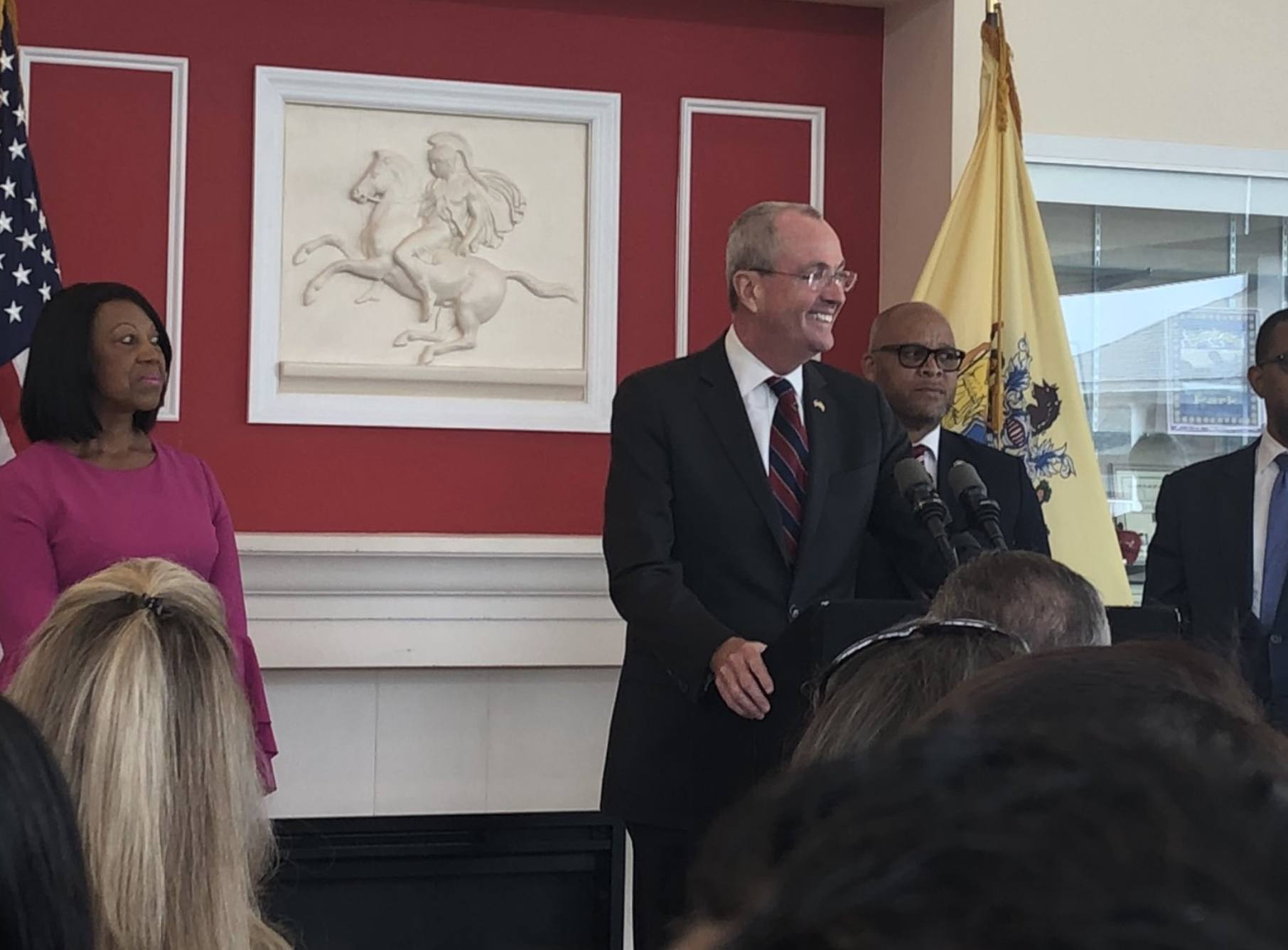New Jersey Gov. Phil Murphy Says State Will Retain Control of Atlantic City, Backpedals on Campaign Promise to Hand Back Power
Posted on: September 20, 2018, 04:20h.
Last updated on: September 20, 2018, 04:28h.
New Jersey Governor Phil Murphy (D) says the state’s takeover of Atlantic City will remain in place despite repeated promises made by the politician on the campaign trail that his administration would hand back control to local leaders.

A study commissioned by the governor released this week concluded that it’s in Atlantic City’s best interest to remain under state control. The examination was performed by former US Treasury official Jim Johnson, who was appointed by Murphy in February to oversee the continued management of the beachfront gaming town.
Atlantic City is on the rise,” Murphy declared Thursday in explaining his decision to keep the town under state oversight. “But I don’t want to see this great and historical city on the mat again. This is not the end of our efforts. This is just the beginning.”
“We have learned from the mistakes in Atlantic City’s past. Together, we are going to get Atlantic City right,” Murphy said.
Governor Chris Christie (R) and the Democrat-controlled state Legislature took control of Atlantic City in 2016 after the town fell more than a half of a billion dollars in debt. The state terminated union contracts, reduced pay for police and firefighters, and worked to settle outstanding property tax disputes with many of the town’s casinos.
Broken Promise
Murphy campaigned on returning Atlantic City control to the community. “I thought the city’s plan was reasonable,” the then-gubernatorial candidate said in 2017 regarding local officials’ refinancing blueprint.
Now in office, Murphy is modifying that position. After conceding he was bothered by the way the state assumed control of the Atlantic City government, Murphy explained this week, “That doesn’t mean Atlantic City doesn’t need the state.”
Johnson, who lost to Murphy in the governor’s race, is working for $1 a year. He replaced former Gov. Chris Christie appointee Jeffrey Chiesa, who billed the state more than $4 million for his services overseeing the city’s government and fiscal overhaul.
Christie says the money was well spent, as Chiesa was able to reach casino property tax settlements that saved the state and town over nearly $100 million.
Imminent Goals
Johnson’s report titled, “Atlantic City: Building a Foundation for a Shared Prosperity,” recommends the town remain under state control until 2021, which is the original deadline set under the Christie administration. The study issued a six-point strategy to get Atlantic City back to a point where Trenton lawmakers can recuse themselves from its governance.
Johnson suggests state and local leaders focus on government fundamentals, which include essential services, developing ways to grow revenue, and listening to citizens’ concerns. He believes a more diverse economy “based on the principle of shared prosperity” would also be of benefit.
Other recommendations include improving the amenities that affect the quality of life for Atlantic City residents, find ways to build on the town’s strengths, address social challenges and “create pathways to opportunity,” and build partnerships between government and philanthropic and nongovernment institutions.
Related News Articles
Most Popular
Las Vegas Overstated F1 Race’s Vegas Impact — Report
Vegas Strip Clubs Wrestle in Court Over Animal Names
Las Vegas Strip Stabbing Near The Strat Leaves One Man Dead
Most Commented
-
End of the Line for Las Vegas Monorail
— April 5, 2024 — 90 Comments -
Mega Millions Reportedly Mulling Substantial Ticket Price Increase
— April 16, 2024 — 6 Comments -
Long Island Casino Opponents Love New York Licensing Delays
— March 27, 2024 — 5 Comments -
Nearly Abandoned Mall Outside Vegas Soon to Have Only One Tenant
— March 12, 2024 — 5 Comments
















No comments yet